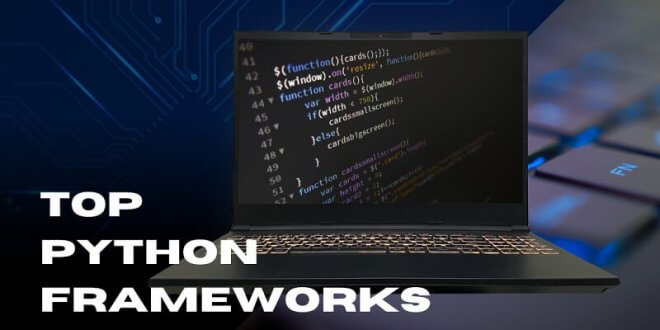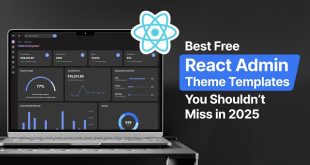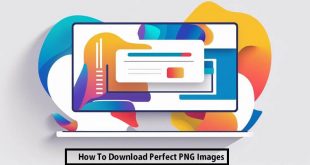Python is a lucrative programming language developers use for web development and automation testing. Its robust libraries and easy-to-use syntax make it stand out among other development languages. Python is embedded with extensive frameworks to fuel various processes. Additionally, it is home to most trending technologies, such as Machine Learning and Artificial Intelligence processes.
A Python framework is a compilation of Python modules designed to offer standardized functionality and serve as a foundation for developing applications across various domains. It is designed to streamline the development process by delivering a general guideline for building software and abstracting away complex or repetitive tasks. This allows developers to focus on writing custom and unique logic for the applications instead of reinventing the wheel.
Stack Overflow Developer Survey 2023 predicts Python as the fourth most accustomed programming language by developers behind SQL, HTML/CSS, and JavaScript. It means that 45.32% of developers use Python. Using Python frameworks assists in diminishing development time as it delivers a prebuilt implementation of redundant tasks. The developers do not need to worry about details like sockets, protocols, etc., and focus on application logic. Developers must explore the Python frameworks to stay competitive.
This article presents the top Python frameworks for 2024 by highlighting their qualities and impact on Python development.
Top Python Frameworks for Automation Testing
Python frameworks are a vital part of the web application development procedure. They help test the code to ensure it provides correct functionality. With growing popularity, the demand for Python automation frameworks is also increasing, as they ensure code quality by automating testing tasks. This implies that developers must choose from numerous Python testing frameworks, each offering script-based automation testing that authorizes the easy creation of test cases.
When selecting Python frameworks for testing, developers need to consider the pivotal information defining its specificity, such as its ability, simplicity of test cases, script quality, and other factors. Here are the top Python frameworks that will dominate in 2024:
Robot
Robot is an open-source, cloud-based test automation framework that streamlines writing test cases and makes them clear and readable based on the keyword-driven method. One key factor contributing to its widespread popularity as a Python framework is its specialization in acceptance testing, behavior-driven development, acceptance test-driven development, and robotic process automation.
In addition, adopting tabular syntax for creating test cases, together with a vast array of libraries and tools, contributes to its widespread acceptance as a preferred option for test automation. It is also essential to note that although Robot Framework is based on Python, it functions seamlessly with IronPython and Jython (.net-based). This diversifies its capability to test your code. Installing Python version 2.7.14 or a newer release is recommended to set up the Python package manager (pip) and acquire development frameworks such as PyCharm Community Edition to set up the necessary environment.
A few pivotal features of the Robot Framework are:
- Built on a keyword-driven testing method. It allows the tester to write test cases using understandable keywords. No need to have any coding experience to start working with Robot Framework.
- Cross-platform feature that makes it highly versatile. It supports all types of application testing, including mobile applications, web applications, and desktop applications, across all critical platforms and OS like Windows, Linux, and macOS.
- Provides uncomplicated, understandable syntax that is effortless to utilize for test data. This authorizes testers to develop and maintain test cases.
- Provide understandable and easy-to-read test reports that help pinpoint issues or errors and resolve them.
- Highly extensible and authorizes testers to create libraries and custom keywords to share across multiple web development projects.
- It has active and robust community support from developers and end-users. This guarantees that Robot Framework is improving and evolving every day, with modifications in software technologies to satisfy the end-user’s needs.
- It supports different built-in test libraries and tools that assist in database, web, and API testing. A few supported libraries are AppiumLibrary, SeleniumLibrary, and DatabaseLibrary. Some framework-supported tools are RIDE, Test Data Editor, and Robot IDE.
Behave
Behave is widely regarded as one of the top Python frameworks for testing, especially beneficial for implementing Behavior-Driven Development (BDD) practices. This Agile development approach facilitates collaboration among developers, stakeholders, and quality analysts. By leveraging Behave, the seamless execution of BDD processes is facilitated without encountering significant challenges. Notably, Behave shares many similarities with Cucumber.
Behave allows for the creation of test scripts in a straightforward language that can then be integrated into the existing codebase. This framework facilitates the reusability of predefined steps across multiple use-case scenarios. To begin working with Behave, you must install Python 2.7.14, pip, and configure PyCharm accordingly.
A few pivotal features of the Behave are:
- It uses a domain vocabulary and semi-formal language to describe system behavior. This guarantees that everyone on the team utilizes consistent terminology to describe the system’s behavior.
- Provide a set of building blocks to execute various test cases. This way, developers can work on numerous modules and coordinate team endeavors effectively.
- All the test specifications are written using a similar format. Regardless of the specifications or the specific modules being tested, ensuring that all specifications adhere to a consistent structure and format is essential. This practice is vital for enhancing clarity in communication between developers and quality assurance personnel.
- Uses semi-formal language to define system behavior. With this feature, developers can communicate with each other and better understand what is being developed.
Pytest
Pytest is a widely adopted Python framework that is open source and facilitates unit testing, functional testing, and API testing. It offers ease of use and learning, making it suitable for both individual practice and open-source projects. Its simple and intuitive syntax enables straightforward creation and execution of automation tests.
A few pivotal features of the Pytest are:
- Supports plugins like pytester to assist developers in writing tests for plugin code. Pytest HTML plugin is used to generate HTML reports for test outcomes.
- Supports parameterization in pytest, which implies running the same test with different parameter sets is possible.
- Provides built-in assertions technique that authorizes writing explicit test assertions.
- Has a large community of QA engineers and users that support and contribute to the framework by adding new features and bug fixes.
- Fixtures are utility functions invoked before each test to establish necessary setup data and after each test to release resources and perform cleanup operations. Pytest has a fixture mechanism authorizing the management of test data and resources.
- The platform features a straightforward and user-friendly syntax for composing tests. It utilizes plain assert statements instead of intricate assertion methods, making test code easy to read.
Lettuce
Lettuce is a widely used Python framework for BDD designed based on Cucumber. Its primary objective is to facilitate the tasks associated with BDD. This framework simplifies defining scenarios, automating test executions, and generating comprehensive reports on the results, providing users with efficient and straightforward tools for BDD practices.
A few pivotal features of the Lettuce are:
- Developers can program in numerous scenarios (different inputs and expected outputs for various scenarios) and describe their features in simple language.
- Is a useful framework, especially for black box testing that facilitates testing without any knowledge of its internal working. Lettuce utilizes natural language to describe scenarios that allow testers to create tests and confirm the behavior of the software application from the users’ perspective.
- Uses Gherkin language for describing scenarios that build a shared understanding of the application behavior with other stakeholders.
- Enables coordination between involved team members in developing software applications.
Nose2
Nose2 is a modernized alternative to the nose framework, offering expanded capabilities beyond PyUnit. It features a range of additional plugins to enhance functionality, including support for test execution, discovery, fixtures, decorators, and parameterization.
A few pivotal features of the Lettuce are:
- Can automatically locate and execute all tests related to software apps without manually selecting each test.
- Enables parallel testing with the help of a multiprocessing plugin.
- The plugin features of nose2 add elements of test discovery, coverage reporting, and others.
- Gives numerous built-in plugins, including logging plugins, parametrizing plugins, skip plugins, xUnit plugins, coverage plugins, and profiling plugins.
- Easy to utilize as built on the PyUnit framework.
Doctest
The Doctest module is a component integrated into the standard library of the Python programming language. By leveraging Doctest, developers and testers can design tests centered on the Python interpreter shell’s outputs. This functionality enables developers to construct test cases by providing input values and comprehensively comparing the actual and anticipated output.
During the testing phase, developers are required to insert test cases manually into the docstrings of Python code. Subsequently, the doctest module will extract these test cases automatically, facilitating their execution to validate whether the output aligns with the anticipated results.
A few pivotal features of the Doctest are:
- Can be integrated with test runners, including unit tests and pytest.
- Tests are written in the code docstring, which permits frequent code modification over time.
- The documentation is written in the docstrings form placed in the initials of the Python process or module.
- Allows developers to maintain code detailed documentation, which comprises instances of how to use the code.
- The use of doctest for web application testing is effortless as it is part of the Python standard library. There is no requirement to install any additional packages.
Quart
Quart is a lightweight and asynchronous Python web micro-framework designed to maintain compatibility with the Flask web framework. Leveraging the asyncio library, Quart offers an asynchronous programming model for enhanced performance and efficiency.
A few pivotal features of the Quart are:
- Provides HTTP/2 support.
- Can write (Restful) JSON APIs.
- Provides WebSocket support.
- Effortless to stream request and response data.
- Furnishes built-in support for testing and debugging.
However, the true capabilities of these frameworks can be leveraged when used with cloud testing platforms. One such platform is LambdaTest.
LambdaTest is an AI-powered test orchestration and execution platform for running manual and automated tests at scale. The platform allows you to perform real-time and automation testing across 3000+ environments and real device cloud.
The platform supports automated testing, allowing users to script and execute test scenarios. This is instrumental in achieving faster and more reliable test execution, especially for repetitive and regression testing tasks.
Conclusion
Python is expected to maintain its status as a prominent programming language in 2024, with a substantial presence in Web Development, Machine Learning, Artificial Intelligence, and others. The demand for web and mobile applications grows with new software technologies and processes. Consequently, the need for an efficient Python framework will rise more than ever in the forthcoming year.
The article discussed the top Python frameworks likely to dominate the testing landscape and software development in 2024. Their unique features and capabilities authorize easy software application testing and provide reliability and scalability.
 free html design Free html design templates
free html design Free html design templates






